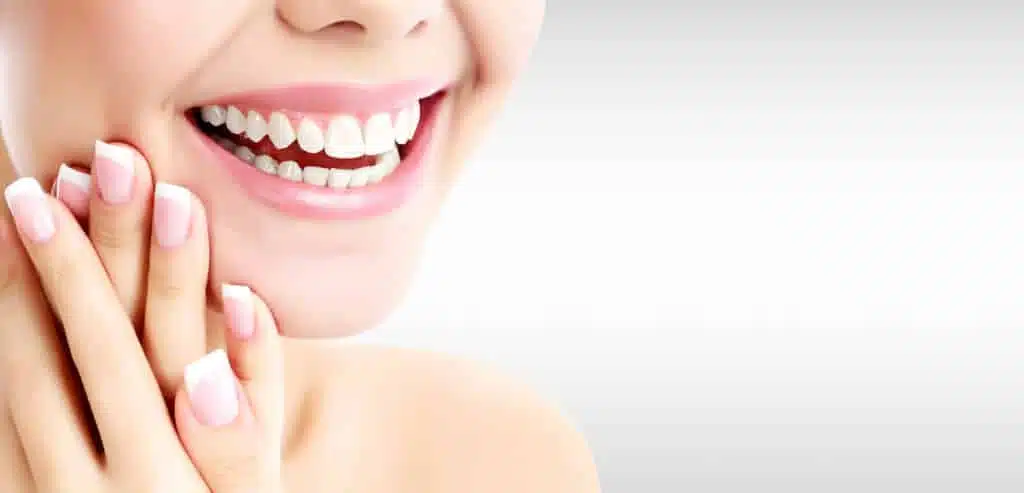What is a Retainer for Teeth? In this article, you’ll find out why it’s essential to stabilize your Teeth after an Orthodontic Treatment.
Retaining the perfect smile after orthodontic treatment is essential to maintaining dental health.
One critical tool in accomplishing this is a dental retainer. In this article, we will delve into the details of what a retainer is, why it is essential, how it works, and how to take care of it properly. So, let’s get started!

What is a Retainer?
The teeth are moved into their correct positions after undergoing orthodontic treatment, such as braces or aligners.
However, teeth have a natural tendency to shift back over time.
This is where retainers come into play, as they help preserve the achieved alignment and prevent regression.
Definition
A dental retainer is a custom-made device usually made of plastic or metal that fits snugly over the teeth.
It is designed to hold the teeth in their corrected positions, providing support and stability to prevent unwanted movement.
Purpose
The primary purpose of a retainer is to maintain the alignment achieved through orthodontic treatment.
It ensures that the teeth do not revert to their previous misaligned positions, preserving the results and protecting the investment of time and money made in the orthodontic journey.
Types of Retainers
Several types of retainers are available, and the most suitable one depends on individual circumstances. The two main categories are:
- Removable Retainers: These are often made of clear plastic and can be taken out for eating, brushing, and flossing. They offer convenience and are commonly used after braces or aligners.
- Fixed Retainers: These are thin wires bonded to the back of the teeth using dental cement. Fixed retainers provide a constant holding force and are ideal for long-term retention.

Why are Retainers Important?
Retainers play a crucial role in preserving the outcome of orthodontic treatment. Here are some key reasons why retainers are important:
- Prevent Teeth Shifting: Retainers help prevent the teeth from shifting back to their original positions, ensuring the longevity of the orthodontic results.
- Stabilize Bone and Tissues: Wearing retainers helps the bone and supporting tissues adapt to the new tooth positions, promoting stability and reducing the risk of relapse.
- Protect Oral Health: Properly aligned teeth are easier to clean and maintain, reducing the chances of tooth decay, gum disease, and other oral health issues.
How do Retainers Work?
Here you can find out exactly how retainers work:
1. Role of Retainers
Retainers exert gentle pressure on the teeth, keeping them in their corrected positions. They counteract the natural forces that cause teeth to shift and provide the necessary support until the bone and tissues adapt to the new alignment.
2. Maintenance
To ensure the effectiveness of retainers, it is important to follow the prescribed maintenance routine.
This typically involves wearing the retainer as instructed by the orthodontist and taking proper care of it to prevent damage or loss.
When and How Long to Wear Retainers
Here you can find out exactly when and how long to wear retainers:
1. After Braces
After the completion of orthodontic treatment with braces, retainers are typically prescribed to be worn full-time for a few months.
Once the orthodontist determines that the teeth have stabilized, the wearing schedule may change to part-time usage.
2. Regular Usage
In most cases, long-term retainer usage is recommended, albeit at a reduced frequency.
Depending on the individual’s specific needs, patients may be advised to wear retainers at night or for a few hours during the day.

Retainer Care and Cleaning
Retainers are not cheap, so taking good care of them is vital.
1. Daily Cleaning
Proper cleaning of retainers is essential to maintain oral hygiene and prevent bacteria buildup.
Removable retainers should be gently brushed with a toothbrush and mild soap or non-abrasive toothpaste.
Fixed retainers require diligent flossing to ensure plaque and food debris are removed.
2. Professional Maintenance
Regular visits to the orthodontist or dentist are necessary for the professional maintenance of retainers.
They can assess the retainer’s condition, make adjustments if needed, and provide guidance on care.
Signs of Retainer Problems
It is important to be aware of potential issues with retainers. If any of the following signs are observed, prompt action should be taken:
- Poor Fit: If the retainer feels loose or does not fit properly, it may no longer be effective. Contacting the orthodontist is advisable for adjustment or replacement.
- Discomfort: Persistent discomfort or soreness when wearing the retainer may indicate a problem. Seeking professional evaluation can help identify and resolve the issue.
- Damage or Loss: Accidental damage or loss of the retainer should be addressed immediately. Delaying replacement can result in teeth shifting.
Conclusion on the Topic “What is a Retainer for Teeth?”
Retainers are an essential part of maintaining the results achieved through orthodontic treatment.
By understanding what retainers are, their importance, how they work, and how to care for them, individuals can ensure the longevity of their beautiful smiles.
Remember to follow the orthodontist’s instructions and seek professional help whenever necessary to keep your teeth aligned and healthy.

FAQs on the Topic “What is a Retainer for Teeth?“
Can I eat with my retainer on?
Removing the retainer before eating is generally recommended to prevent damage and maintain oral hygiene.
How often should I clean my retainer?
Removable retainers should be cleaned daily, while fixed retainers require regular flossing and brushing.
Can retainers be repaired if damaged?
Depending on the extent of the damage, retainers can often be repaired. It is best to consult with the orthodontist for guidance.
How long will I need to wear retainers?
The duration of retainer usage varies but may extend for several years, if not indefinitely. The orthodontist will provide specific instructions.
What should I do if my retainer is lost?
Losing a retainer should be reported to the orthodontist promptly. They will advise on the next steps, which may involve getting a replacement.
- About the Author
- More info


Leave a Reply